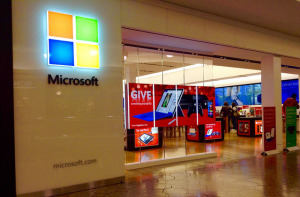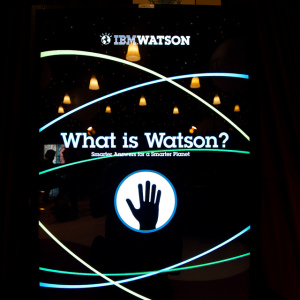Technology Stocks
Microsoft Rallies on Cloud
Microsoft (Nasdaq: MSFT) appears to be on a roll, finally. The recent result announcement earlier this week, sent the stock soaring close to its 52-week high levels. The company surpassed analyst expectations, primarily driven by the growth in its cloud business. According to a Gartner report published earlier this year, the global market for cloud system infrastructure is projected to grow to $22.4 billion this year and Microsoft is making sure it has a big chunk of the market.
Featured Videos
Can 1M/1M Help Me Raise Money?
How Does 1M/1M Democratize Entrepreneurship Education?
How Does 1M/1M Democratize Management Consulting?
When Is The Right Time To Join 1M/1M?
Can 1M/1M Help Me With Business Development?
Can 1M/1M Help Me With Market Sizing?
Can 1M/1M Help Me Validate My Product?
Will I Have Private 1-on-1 Sessions In 1M/1M?
How Does 1M/1M Help Entrepreneurs Connect With Silicon Valley?
Mentoring or Consulting?
Why Does 1M/1M Charge $1000 a Year?
Why Does 1M/1M Partner With Local Organizations?
Why Don\’t Mentoring Networks Work?
Why Is It Important To Study With 1M/1M Now?
Dan Stewart Story
Vikrant Mathur Story
IBM’s Turnaround Shows Some Promise
IBM’s (NYSE: IBM) revenues continued to decline for the seventeenth straight quarter, but the general sentiment is that it seems to be making progress in its strategic turnaround and its stock is trading close to its 52-week high. IBM has been moving away from computer hardware sales and reorganizing its portfolio to focus on “strategic imperatives” like the cloud, analytics, and mobile computing. >>>
Netflix Struggling With Market Saturation
Five years ago, Netflix (Nasdaq: NFLX) announced plans to increase its subscription cost and the announcement had backfired. The stock tanked, subscribers fled and the company had to recall its decision. For the last two years now, the company has been gradually increasing its prices again. New subscribers are being added at a higher cost subscription and grandfathered rates are finally going away. But the market is still not happy.
Billion Dollar Unicorns: Unity Technologies a Strong VR Gaming Bet
According to Gartner, the worldwide video game market, which includes video game console hardware and software, online, mobile and PC games, is projected to reach $128 billion by 2017. US video game companies recorded revenues of $23.5 billion in 2015 with software sales increasing 7% to $16.5 billion. Unity Technologies is the most recent entry to the Billion Dollar Unicorn Club from this market. >>>
Flipboard Focuses on Profitability Amidst Rising Competition
According to ZenithOptimedia, the global ad expenditure will reach $579 billion by the end of 2016. Internet advertising is one of the fastest growing advertising media: it has risen from 6% share in 2005 to 29.5% share in 2015 and is expected to attract 37.6% of global ad spend by 2018. This comes at the expense of print media. Newspapers’ share of global spend has fallen from 29% to 13%, while magazines’ has fallen from 13% to 6% and by 2018 newspapers and magazines are expected to end with 10% and 5% market share, respectively. >>>
2016 IPO Prospects: Glassdoor Gearing up to go Public
Referring to online reviews is no longer restricted to restaurant booking, hairstylists, or your neighborhood dog walker. More and more people are using job review sites like Glassdoor.com to review their next new job. Little wonder then that the increasing traffic has helped drive valuations upwards as the company gets ready to go public.
Match Group Re-Evaluating its User Base
Last year, Billion Dollar Unicorn player Match.com (Nasdaq: MTCH) went public and listed in times when most Unicorns and venture capitalists were re-evaluating valuations. But despite the circumstances, Match appears to have done well with the stock still trading above its initial listing price and the company still being valued at multi-billion dollars.
Billion Dollar Unicorns: SMS Assist Brings a Lackluster Industry to the Club
According to a Markets and Markets report, the global facility management market is estimated to be worth $49.44 Billion by 2020. The industry is expected to grow 13% annually over the five-year period from 2015 through 2020. The industry was pegged at $27.25 billion in 2015. Chicago’s SMS Assist is among the leading players in the industry that entered the Billion Dollar Unicorn club recently.
Billion Dollar Unicorns: Cylance Uses Machine Learning as Cyber Security Tool
According to Gartner, worldwide IT spending is estimated to grow to $2.77 trillion this year. Gartner projects the overall security market to grow 7.8% annually over the next three year period through 2019. Another report by MarketsandMarkets projects the global cyber security market to grow from $106.32 billion in 2015 to $170.21 billion by 2020, translating to an annual growth rate of 10%. Billion Dollar Unicorn player Cylance is making a mark in this high growth market.
Billion Dollar Unicorns: Driverless Car Startup Zoox Joins The Club
According to Business Insider, 10 million self-driving cars will be on the road by 2020. Several leading automakers like Mercedes, BMW, and Tesla are soon going to try to release self-driving cars (regulation permitting) and a driverless future may not be so distant. According to Boston Consulting Group, the global driverless car market is expected to reach $42 billion by 2025. Riding on this potential is self-driving car startup Zoox that recently joined the Billion Dollar Unicorn Club. >>>










